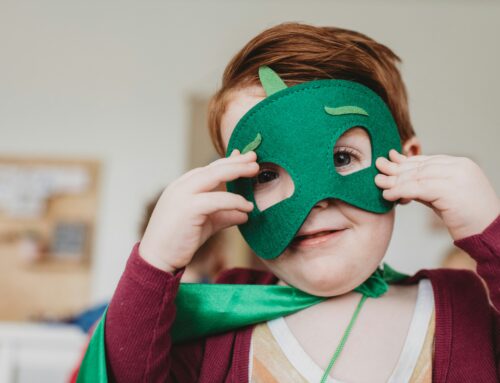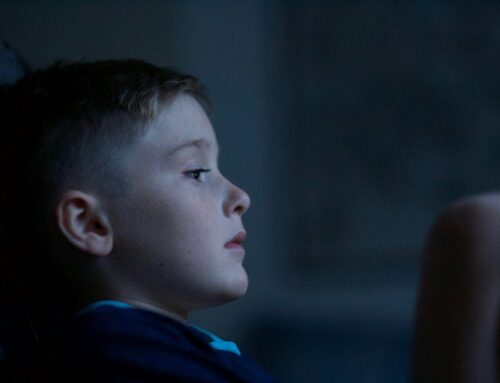Almost everyone has had moments of nervousness around other people. From first dates to the first time in the school play, life is filled with experiences that make us anxious.
Social anxiety disorder, however, isn’t typical nervousness or shyness.(2) When someone has social anxiety disorder, their entire life is severely impacted by their condition. A person with social anxiety disorder experiences intense feelings of fear even when completing normal, everyday tasks, such as eating in front of other people, visiting a public restroom, writing in public, or speaking with a cashier.(2) The tasks that tend to make most people a little nervous, like performing in a band or giving a speech, can be magnified and extreme for people with social anxiety, especially a type called performance anxiety.(2) This anxiety can make it practically impossible to accomplish activities in which the person would otherwise excel.
People with social anxiety fear embarrassment, judgment, and rejection. They often struggle with their anxiety at school or in the workplace. They also tend to avoid the places that trigger their intense anxiety.(2)
Symptoms of Social Anxiety Disorder
Social anxiety is most often noticed in childhood or young adulthood.(2) However, it affects people of all ages. Individuals with social anxiety disorder might experience:
- Symptoms of severe anxiety, such as a racing heartbeat, shaking, sweating, trouble concentrating, or nausea.(2)
- Difficulty with social skills, such as maintaining eye contact, speaking loudly and clearly, or appearing relaxed. They will usually notice their own difficulties and wish that they could communicate better.(2)
- Feelings of awkwardness, fear of humiliation, concerns about being judged, and extreme discomfort.(2)
- A strong desire to avoid people and places where social anxiety could be triggered.(2)
What Is CBT and How Can It Help Social Anxiety Disorder?
Cognitive-behavioral therapy is one of the most commonly used mental health treatments. It is a particularly useful therapy for anxiety disorders. CBT is a type of talk therapy that helps mental health patients to think differently and in more healthy ways.(1) CBT helps individuals to develop coping skills that will allow them to better manage their mental health condition. In fact, studies into the effects of CBT on the brain have shown that cognitive-behavioral-therapy might actually help to rewire the brain in a more positive way.(3)
CBT is also known for its ability to foster resilience and guide patients toward better stress management.(1)
There are different forms of CBT. Talking with a licensed professional about your own (or your child’s) social anxiety will help the therapist to determine what kind of CBT would be best for your individual situation. Sometimes, CBT is combined with other treatments or even medications, as well, for maximum effect. Your care professional will be able to offer you an appropriate treatment plan for your situation.
Services at NeuroBehavioral Associates
NeuroBehavioral Associates remains open during the COVID-19 pandemic. We are continuing to provide in-office assessments, consultation, and therapy services. We are also employing telehealth tools to compliment in-office visits. Our practice maintains a low-contact testing strategy that includes social distancing.
Social anxiety often coexists with other conditions. At NeuroBehavioral Associates, we use cognitive behavioral therapy techniques and targeted therapies to treat children and families affected with known or suspected attention, learning, and neurodevelopmental disorders. We provide neuropsychologically informed strategic therapy (NIST) and also offer strong resources, as well as referrals, for parents.
Our staff has decades of skill and experience. Dr. Culotta, Ph.D, ABN is co-author of the book, School Success for Kids with Emotional and Behavioral Disorders.
Contact our team today at 410-772-7155 or email us to schedule an appointment at our Columbia, Maryland location.
References:
- Cognitive behavioral therapy – Mayo Clinic. (2019, March 16). Mayo Clinic. https://www.mayoclinic.org/tests-procedures/cognitive-behavioral-therapy/about/pac-20384610
- NIMH » Social Anxiety Disorder: More Than Just Shyness. (2020, November 18). National Institute of Mental Health. https://www.nimh.nih.gov/health/publications/social-anxiety-disorder-more-than-just-shyness/index.shtml
- Porto, P. R. (2009). Does cognitive behavioral therapy change the brain? A systematic review of neuroimaging in anxiety disorders. PubMed. https://pubmed.ncbi.nlm.nih.gov/19622682/






